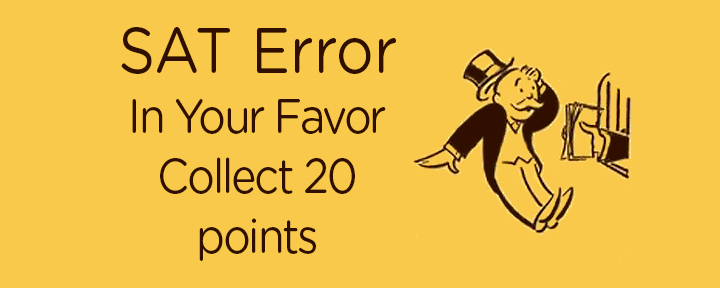
As promised in my earlier post, below is a list of recommended summer reading for older kids.
Don’t let summer slip by with just games and sports – get them reading!
MIDDLE SCHOOL
Horrible Histories (Deary)
Quest for a Maid (Hendry)
Count of Monte Cristo (Dumas)
Treasure Island (Stevenson)
Hard Times (Dickens)
Rifles for Waite (Keith)
Catherine, Called Birdy (Cushman)
Watership Down (Adams)
Mrs. Frisby and the Rats of NIMH (O’Brien)
HIGH SCHOOL
Pride and Prejudice (Austen)
Gone with the Wind (Mitchell)
The Hitchhiker’s Guide to the Galaxy (Adams)
Small Gods (Pratchett)
Wuthering Heights (Bronte)
Time and Again (Finney)
Angela’s Ashes (McCourt)
Jane Eyre (Bronte)
Twelve Angry Men (Munyon)
Joy Luck Club (Tan)
Catch-22 (Heller)
Slaughterhouse-Five (Vonnegut)

As promised in my earlier post, below is a list of recommended summer reading for older kids.
Don’t let summer slip by with just games and sports – get them reading!
MIDDLE SCHOOL
Horrible Histories (Deary)
Quest for a Maid (Hendry)
Count of Monte Cristo (Dumas)
Treasure Island (Stevenson)
Hard Times (Dickens)
Rifles for Waite (Keith)
Catherine, Called Birdy (Cushman)
Watership Down (Adams)
Mrs. Frisby and the Rats of NIMH (O’Brien)
HIGH SCHOOL
Pride and Prejudice (Austen)
Gone with the Wind (Mitchell)
The Hitchhiker’s Guide to the Galaxy (Adams)
Small Gods (Pratchett)
Wuthering Heights (Bronte)
Time and Again (Finney)
Angela’s Ashes (McCourt)
Jane Eyre (Bronte)
Twelve Angry Men (Munyon)
Joy Luck Club (Tan)
Catch-22 (Heller)
Slaughterhouse-Five (Vonnegut)

Worried about fire danger? You’re not alone. If you think your fire department and the government will protect you should there be a major fire or earthquake – do the math — they don’t have the manpower to save everyone. Think Paradise and Woolsey fires where 86 people died and over 18,000 structures were destroyed. I live in a tinderbox on 2+ acres, and I’m working with local Fire Chiefs, First District Supervisor, and Resource Conservation District to set up fire prevention and protection in my neighborhood.
You can do a few things right now to make sure that you, your family, the elderly and pets will be able to evacuate in time when the next fire or earthquake hits. In a crisis, firefighters and paramedics can reach all of us if we give them vital information. Will they know that you have an indoor cat or dogs locked up in your yard? What about the elderly or sick who might not hear sirens or loudspeakers? And to prevent wildfires from spreading exponentially, do you know where your propane tanks, gas tanks, and electricity boxes are located on your property and your neighbors’?
Here are things you can do NOW:
☐ Gather neighborhood contact information (share this blog with all of your neighbors) Include names, address, children/elderly/disabled, phone, email, and pets.
Here are things you can do for you and your family:
☐ Create Family Disaster Plan [https://www.ready.gov/make-a-plan]
☐ Learn how to use your fire extinguishers
☐ Practice turning off your gas, electric, and water controls
☐ Make your Go Bags with emergency supplies, first aid kits, medications, etc. [https://www.sf72.org/plan]
☐ Take first aid and CPR classes [https://www.redcross.org/take-a-class/cpr]
☐ Get your pets microchipped [https://www.wikihow.com/Microchip-Your-Dog]
☐ Create an evacuation to-do lists: (1) Go Bags, pets, list of valuables you can’t live without; (2) Turn off utilities, lock up house, post sign (indicating you’ve evacuated). [http://www.readyforwildfire.org/docs/files/File/calfire_go_brochure_LINOweb.pdf]
☐ Make your home fire safe [https://www.nfpa.org/Public-Education/By-topic/Wildfire/Firewise-USA]
☐ Create defensible space to protect your home [http://www.readyforwildfire.org/Defensible-Space/]
☐ Sign up for CODE RED to get emergency alert messages on your landline or cell phones (reverse 9-1-1) [http://communityemergency.org/alerts/] or [www.scr911.org] for Santa Cruz
Here are things you can do for your neighbors:
☐ Create a map of their gas, electricity, and water controls (so you can turn them off if they are gone during evacuations)
☐ Find out who is elderly, sick, or disabled so EMS can help them evacuate
☐ Be prepared to place “Help” or “OK” signs so first responders don’t waste time searching for victims who have already evacuated.
☐ Set up Neighborhood Care Center where children, elderly/disabled, and pets can be safe until help arrives.
☐ Find out if there are healthcare professionals in your neighborhood who can help triage and treat victims if EMS is not available
☐ Organize emergency equipment and supplies for neighbors that include first aid, tents/bedding, chain saws, generators, fire extinguishers, NOAA weather radio, walkie talkie, etc)
☐ Get CERT trained (Community Emergency Response Team) [https://californiavolunteers.ca.gov/community-emergency-response-team-cert/
Remember Yogi Bear? He was smarter than the average bear? Now Yogi Bear is saying, “I’m losing control, Boo-Boo. I don’t know who’s steering the ship!” So set aside 2-3 hours every weekend (you CAN DO THS!) to put together your Go Bag, make your lists, and to check off each of the boxes above. You’ll be glad you did!

Reading for pleasure during the school year can be challenging when kids come home with hours of busy work (homework) and they’re booked solid with extracurriculars (sports, musical instruments, and clubs). It’s tough to compete with teachers, and well, life! So during the summer, if you plan this out at the start of the summer, introduce the LOVE OF READING to your kids. Set up a family calendar where you list what they’ll be reading each week. Have the kids decide when they’ll read (and finish!) each book. That way they won’t reach the end of the summer with a stack full of books that haven’t been opened!
Use this time to choose some classic books, the books that every kid SHOULD READ! Like ROIs (return on investments), let’s make sure they get the most bang for the buck with their reading. Here’s a list of books that I’ve compiled based on my kids’ favorites and some authorities in the literary world. What books were your favorites?
PRESCHOOL
The Giving Tree (Silverstein)
How Much is a Million? (Schwartz)
There was an Old Lady Who Swallowed a Fly (Taback)
Where the Wild Things Are (Sendak)
Alexander and the Terrible, Horrible, No Good, Very Bad Day (Viorst)
Velveteen Rabbit (Williams)
The Big Book for Peace (Dutton)
LOWER ELEMENTARY
The Cricket in Times Square (Seden)
Sadako and the Thousand Paper Cranes (Coerr)
Where the Sidewalk Ends (Silverstein)
Charlie and the Chocolate Factory (Dahl)
Fables (Lobel)
The Voyages of Dr. Doolittle (Lofting)
Ralph S. Mouse (Cleary)
Encyclopedia Brown (Sobol)
UPPER ELEMENTARY
Island of the Blue Dolphins (O’Dell)
A Wrinkle in Time (L’Engle)
Dear Mr. Henshaw (Cleary)
Nancy Drew (Keene)
Hardy Boys (Dixon)
Boxcar Children (Warner)
Harry Potter (Rowling)
Secret Garden (Burnett)
The Book of Three (Alexander)

If you took the May 2019 SAT, your math score may go up by 10-20 points! Yup. The College Board made an error by not including the correct answer in the multiple choice possibilities. Students whose scores were increased due to this error have been notified by the College Board, and notifications have been sent to colleges.
This is yet another example of how wealthy students have better opportunities than their poorer counterparts. A private school student’s SAT tutor found the error when reviewing the student’s exam. We all know how every point makes a difference in college admissions and scholarship decisions, and students whose parents can pay tutors to analyze their entire May SATs – something that can cost hundreds of dollars – so the student can improve specific areas for future sittings or challenge the College Board (like they did here) if errors are found reap the benefits.
Unfortunately, most errors are never caught, and most students and their families don’t have the finances, or time, to fight the College Board. But this time, many SAT students who took the test in May will receive the benefits of the rich and famous without paying a dime. Love it when these breaks help all students.
[Source]

Scandals within college fraternities have escalated with the MeToo movement demanding accountability from irresponsible, entitled fratboys. Yale University’s frats are notorious for sexual hostility against women. Their pledges have posted signs that read “We Love Yale Sluts” and have chanted “No means yes; Yes means anal.” It’s shocking that these men should be the smartest and most capable men in the country – yet the way they fraternize with their “brothers” creates a good-ol’-boy’s club that creates misogynistic morale that has opened doors to rape and sexual misconduct on campus.
Female students at Yale have demanded that these fraternities admit women as a solution to how they are treated. Three women tried to join frats at Yale in 2017 and 2018, but were rejected. Feeling the heat, Harvard University has tried to stop single-sex organizations and dissuaded students from joining them.
Back in 1972, Title IX (federal education amendment) passed to protect students against gender discrimination – except for social Greek organizations (fraternities and sororities). This is why it’s so difficult to make single-sex fraternities and sororities become coeducational.
While verbal, mental, and sexual attacks against female students on college campuses needs to stop, I’m not convinced that making fraternities coed will solve the problem. This wave of misogyny needs more than coed social clubs to stop these attacks. We need social reform and public pressure to shame these students into stopping these abhorrent acts.
[Source]

Want to give your child a graduation gift that they’ll treasure forever? Give them a biography of their lives. I gave Nicole, my oldest daughter, her biography when she finished her ER residency and Jaclyn, my youngest, her biography when she completed her MBA. I’ve always kept a diary and continued when my girls were born. It was my way of sorting through my thoughts and debriefing when life threw obstacles in my path. When the girls began to talk, I would ask them questions and take dictation as they responded. As they grew older, I would include their friends, and even their boyfriends as they became teens. When we read these biographies together today, it’s the little quotations and stories taken from their dictations that bring laughter and fond memories.
I made it a point to make journal entries at least once per month to catch up on all they were doing. It would only take me about 15 minutes, and I usually wrote after they went to bed. Back in the ‘80s when I started these biographies, we had film cameras, which required developing and waiting days to get the photos back. I’d rush to put the photos into photo albums and created over 150 to date. Knowing that photos only last about 30 years, my husband scanned the albums and I edited and organized the photos into folders on my computer by year, month and event. Then I added photos for every paragraph in their biographies. I even scanned poems they wrote, drawings and paintings, and holiday newsletters. I thought this would take a few months to prepare but it took 15 years!
Here’s my advice: Don’t wait until they’re ready to graduate to start their biographies! Write your biography using a word processor or desktop publishing software. Add high resolution photos (300 dpi) and documents directly to your biography right away so you don’t have to search through thousands of photos and documents in multiple locations later. Add captions to indicate who’s in the photos and what they’re doing. You can publish these full-color books from on-demand publishers like IngramSpark for under $100. If you don’t want to wait until graduation, you can give them biographies every birthday, or every five birthdays. Historians say that these biographies will be what future generations will read to learn about society today. This will be a gift they treasure forever.


In the near future, non-technical skills will become more valuable to employers because rote mechanical skills will be done by computers and robots. The top 5 skills companies are seeking in new recruits are creativity, persuasion, collaboration, adaptability and time management. All of these soft skills are in hot demand but creativity and collaboration are truly essential in our digital economy.
Marketing specialists, graphic designers, teachers, and project managers need creativity.
Teachers, project managers, customer service reps, and nurses need adaptability.
The ability to convince others that their idea or plan is worth pursuing requires the skill of persuasion.
Almost every job requires working with other people, some of whom are located in different parts of the world, which is why collaboration is critical.
The skill that ties most of the others together is time management – if an employee can’t get organized enough to produce something, their other skills can’t come into play.
Employers also want expertise in cloud computing, artificial intelligence, user-experience design, management, and analytical thinkers, however, hard skills have fallen aside.
According to Darrell West, director of Brookings’ Center for Technology Innovation,
“Software designers need people who can translate their work and make devices easy to use by non-specialists. That means teams of technical and non-technical people who can work well together. One without the other will mean devices that are too complicated to use.”
I certainly agree with West. Every time I clumsily fumble with new devices, I wonder what engineers designed the products without understanding what we consumers want. So don’t snub students who consider careers in the arts, social sciences and humanities. Who knows – someday you may be applying for a job that requires that you have strong soft skills!
[Source]

Remember the derogatory comments made about the Australian athlete Tayla Harris last month? You probably remember the photo of her kicking a ball in mid-air with perfect form and incredible athleticism. She received an influx of repulsive and sexist comments that she calls sexual abuse on social media, and the photo was removed (but later reposted). It appalls me that twisted people make misogynist statements about talented women, when men appear half naked and sweaty, but are revered as respected athletes.
My daughters competed on one of the best dance teams in the state (No Limits Dance and Performing Arts) and they consistently won at regional and national competitions. Not being a dancer myself, I was blown away by their choreography that required both athleticism and talent. I purchased professional cameras and became their teams’ photographer. I shot group and solo jumps, turns, and unique routines — movements that didn’t seem physically possible to me. Capturing their gorgeous jumps, I shared the photos with the families.

Well, no good deed goes unpunished!
I distinctly remember one parent telling me that I shouldn’t take photos of the girls doing jumps or kicks if it showed their crotch area – even if their costumes completely covered the area. Like Harris, the dancers were powerful and amazing. This shocked me because this parent succumbed to sexist pressure that objectifies women, or girls, as sex objects. I guess this follows the train of thought that women who wear short skirts are enticing men to rape them. Both athletic and dance photos of women should be appreciated for their talent and skills, and not ridiculed by demented people.
[Source]

I have a hard time fasting for one day – I find myself counting the hours and dreaming about BBQ salmon and a buttery baked potato! That’s why I feel for Muslim students who are observing Ramadan this year during finals, AP exams, and SATS. This year, Ramadan falls between May 5th and June 4th, and it is a Muslim holiday where they fast from dawn until dusk for a full month to become closer to Allah. Ramadan is especially difficult during the late spring and summer months because there is more daylight hours than during the winter, which translates to 15 hours of fasting vs 10 hours.
Several colleges give special accommodations to students who observe Ramadan by changing exam times to early in the morning or late at night to allow time for the students to have a meal before taking the exams. Any student who observes religious holidays or even students who have important events like weddings and funerals can work with their professors to arrange to take exams at times that work both for the student and the professor.
[Source]

Did you know that students who take online classes are less likely to learn concepts and benefit from lectures than students in traditional brick and mortar classrooms? Yup! Here’s why: Students in a classroom with a teacher or professor in the front of the room are not going to text their friends, email messages, play videogames, watching YouTube, or check their social media accounts when the teacher is looking right at them. Many teachers have rules against having smart phones, and even laptops or tablets in the classrooms for this reason.
But students taking online classes – even those with cyber lectures — are more inclined to multitask during lectures. They’ll often listen to lectures while playing videogames or texting friends. Because social media and staying connected with their friends and family sucks them into a cyberworld that is disconnected from the class lecture, the student’s focus goes between the class lecture and their multitasking activities. Your brain can’t do both at the same time – it goes back and forth, which means that they’re not hearing, engaging, learning, or retaining information at the depth they need to for the class.
Studies conducted at Kent State and Purdue Univ found that students are 25% more likely to multitask in online settings than in-person settings. I’ve found that when students are listening to lectures, researching concepts, writing papers, or studying for exams, they are more efficient if they do the work completely without social media (Instagram, Facebook, Twitter, email) and cyber distractions (YouTube, videogames, Netflix, online shopping). In other words, they’ll learn at a deeper level, get better grades, and retain the concepts for tests and finals – and they’ll do it quicker! Students should take classes and study void of all distractions, and then enjoy all of their social media and gaming when they’re done.
Parents, set the rules to get homework and studying done first so your child will do better in school and have more time for social media later.
[Source]








